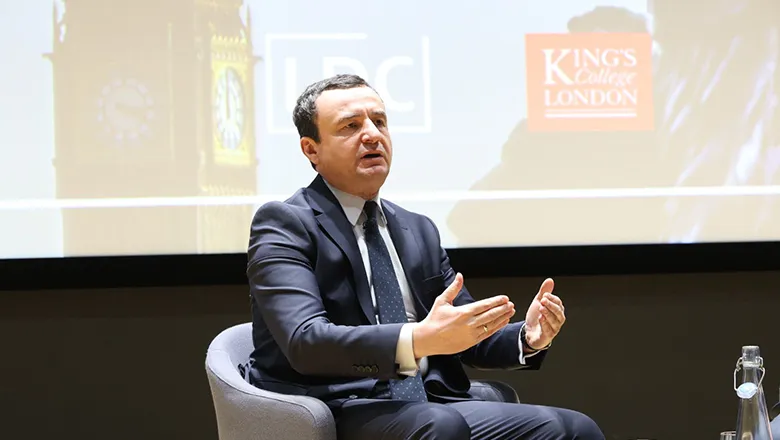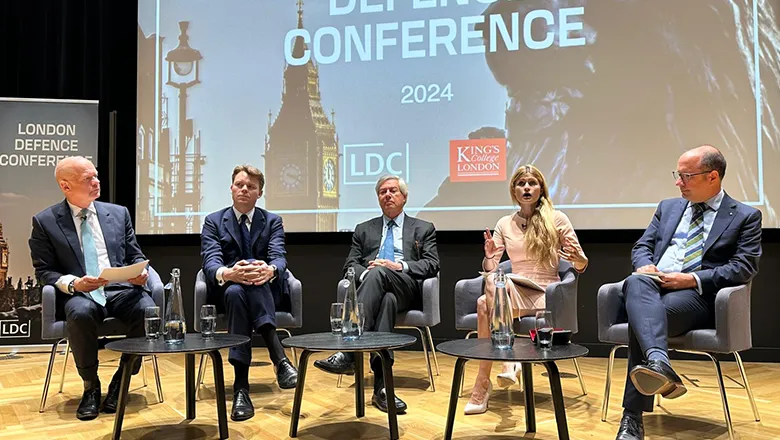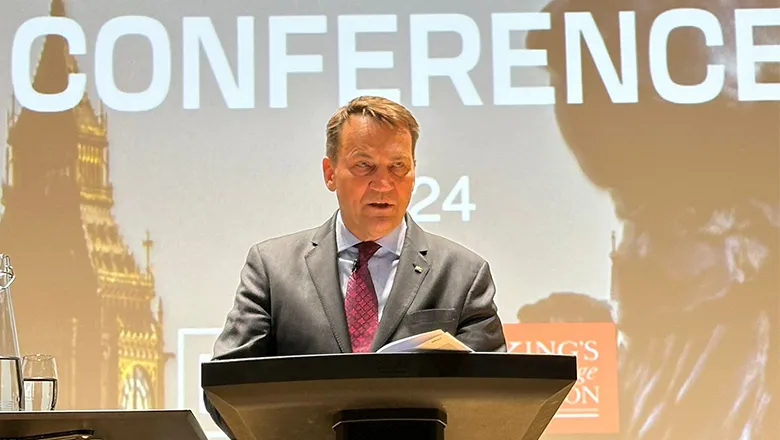"The threat is not merely a theoretical one, the risk of a new war is real."
Prime Minister of Kosovo, Albin Kurti
23 May 2024
Day 3: The London Defence Conference 2024
Leaders in security and defence from around the world joined King’s College London for the third and final day of the London Defence Conference 2024.

Expert panels and keynote speakers discussed issues including the potential impact of elections in the UK and the US on defence, the security situation in Kosovo and the Balkans, and dealing with an Iranian nuclear threat.
Prime Minister of Kosovo, Albin Kurti, opened the third and final day of the conference, praising his country for its developments in democracy, industry and growth since gaining independence from Serbia.
However, Mr Kurti warned that the threat of authoritarianism in the region was far from over, with key members of the Serbian regime still in positions of authority. He said that Serbia was continuing to strengthen ties with Russia, China and Iran, saying "at a time when we are experiencing war in Europe, we cannot ignore the threat of another war in a region that knows all too well what it means."
Echoing the sentiment of other speakers across the conference, Prime Minister Kurti encouraged greater collaboration between democratic world powers and a commitment to defence spending. He said: "We the countries that uphold democratic values, need to close the political and practical vacuum that makes authoritarian figures believe that an attack on another European country is viable."

The conference also heard from a panel on defence and the general election, discussing how Labour or the Conservatives might change the UK's strategy. In another session on emerging technologies, Dr Ulrike Franke, senior policy fellow at the European Council on Foreign Relations, described the cat and mouse game being played in drone and anti-drone warfare. She said in the war in Ukraine the technology is changing on an almost weekly basis, as technological developments are created, implemented and then quickly rendered obsolete.
In another panel "Near nuclear Iran: dealing with the threat", experts discussed the state's motivations to either progress to being a nuclear power or remain at the nuclear threshold. Panelists also discussed Iran's strained relationship with Israel and ambitions in the region.
"On the day that that Iran declares itself in nuclear state, the situation in the Middle East would change profoundly."
Walter Russell Mead, Professor of Foreign Affairs and Humanities at Bard College

Concluding the conference was a speech from Polish Minister of Foreign Affairs, Radek Sikorski, who praised the UK and Poland's effort supplying military aid and training Ukrainian soldiers.
He also warned that if Russia is victorious in Ukraine, chronic instability would spread across the world and give fuel to a global coalition of dictatorships.
Mr Sikorski said: "Russia's goals seem to be clear: to recreate its sphere of influence in Central Europe against the will of nations, which shattered the Iron Curtain 35 years ago."
This was the second iteration of the annual London Defence Conference. It was hosted at Bush House by King’s School of Security Studies.
The three-day conference, hosted by King’s School of Security Studies, began on 21 May with a "Future Leaders Day" for students and young professionals to explore topics such as Counterterrorism, Middle East, economic sanctions and maritime security.
Catch-up with highlights from the "Future Leaders Day" and day two of the conference, which saw a keynote address from Rt Hon Grant Shapps, MP, the UK Secretary of State for Defence.
